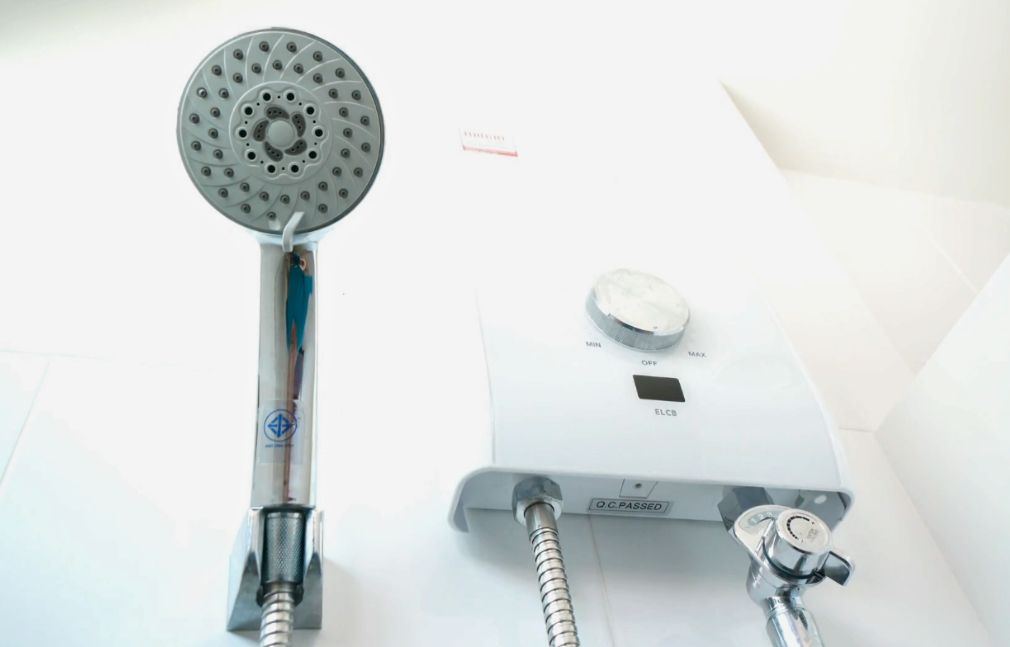
Nowadays, Tankless water heaters become so popular choice for homeowners as they offer energy efficiency and convenience. Here we are gonna talk about the noises they make, including groaning. If your tankless water heater is making a groaning noise, it’s time to identify the cause and take steps to fix it.
What causes a tankless water heater to make a groaning noise?
A groaning sound from your tankless water heater might arise from various factors. Grasping these reasons can guide you in taking the right steps to tackle the problem and bring back the tranquil operation of your heater.
1. Sediment Buildup:
One common cause of groaning noises in tankless water heaters is sediment buildup. Over time, minerals from hard water can accumulate within the heater, forming scale or sediment deposits. These deposits can restrict water flow and create vibrations that produce a groaning sound.
2. Scale Buildup
Similar to sediment buildup, scale buildup can also contribute to groaning noises. Scale is a hard, crusty deposit that forms on the heating elements of the tankless water heater. As scale accumulates, it can reduce heat transfer efficiency and generate a groaning sound.
3. Water Pressure Issues
Excessive water pressure can put strain on the tankless water heater’s internal components, leading to a groaning noise. High water pressure can cause the pressure relief valve to open and release water, resulting in a groaning or rumbling sound.
4. Air in the System:
Well, Air trapped in the water lines of the tankless water heater can cause various noises, including groaning. Air bubbles can vibrate and create a groaning sound as they pass through the heater.
5. Dirty flow sensor
The flow sensor is a part of the tankless water heater that controls how much water is flowing through the unit. If the flow sensor is dirty, it can cause the heater to make a groaning noise.
Related: What causes gas smell from the water heater valve?
Is the groaning noise in my tankless water heater a serious problem?
Indeed, a groaning sound from your tankless water heater signals a significant issue. Although it might not pose an immediate safety risk, it indicates a root problem that requires attention. Neglecting the groaning noise could escalate into a more severe issue, potentially causing a heat exchanger failure or a pressure relief valve rupture.
Here are some of the reasons why a groaning noise in your tankless water heater is a serious problem:
- There is a problem with the water flow: This can be caused by sediment buildup, scale buildup, or air in the system. If the water flow is restricted, it will put a strain on the heater and could eventually cause it to fail.
- Sign of a problem with the heating elements: If the heating elements are damaged or covered in scale, they will not be able to heat the water efficiently. This will put a lot of pressure on the heater and could eventually cause it to overheat.
- Could be a sign of a problem with the pressure relief valve: The pressure relief valve is a safety device that protects the heater from overheating. If the valve is faulty, it could make a groaning noise. If the valve fails to open when it is supposed to, it could cause the heater to rupture.
If you notice a groaning noise coming from your tankless water heater, it’s crucial to promptly consult a certified plumber for inspection. Avoid dismissing the noise, hoping it will resolve itself. Neglecting the issue might result in more severe problems, including heater failure or pressure relief valve rupture.
How can I fix the groaning noise in my tankless water heater?
A groaning noise from your tankless water heater can be a cause for concern, but it doesn’t necessarily mean you need to replace the entire unit. Here’s a step-by-step guide to troubleshooting and fixing the issue:
1. Flush the sediment from the heat exchanger.
Sediment buildup in the heat exchanger is a common cause of groaning noises in tankless water heaters. To flush the sediment, attach a hose to the drain valve on the heat exchanger and open the valve. Run the hose until the water runs clear.
2. Descale the heating elements.
Hard water can cause scale to build up on the heating elements of your tankless water heater. This scale can restrict water flow and cause the heater to make a groaning noise. To descale the heating elements, you can use a commercial descaling solution or by running vinegar through the heat exchanger.
3. Bleed the air from the system.
Air in the water lines can also cause a variety of noises, including groaning. This is more likely to occur if your tankless water heater is new or if you have recently had work done on your plumbing system. To bleed the air from the system, open the highest faucet in your house and let the water run until the groaning noise stops.
4. Replace the pressure relief valve.
The pressure relief valve is a safety device that protects your tankless water heater from overheating. If the pressure relief valve is faulty, it can make a groaning noise. To replace the pressure relief valve, you should contact a qualified plumber.
How much does it cost to fix this?
Now, the cost of silencing that groan can vary. It’s a bit like unraveling a mystery because these noises can have different origins. If it’s a minor issue like sediment buildup, a good flush might do the trick, and that’s not too heavy on the wallet. On the other hand, if there’s a more complex problem lurking within the system, it might involve some parts replacement or adjustments, nudging the cost a bit higher.
In the ballpark, you could be looking at anywhere from $100 to $500, depending on the complexity of the issue and the need for professional intervention. It’s always a good idea to have a technician take a look to give you a more precise estimate tailored to your specific situation. Remember, it’s not just about silencing the groan but making sure your water heater is humming happily for the long run.

Leave a Reply